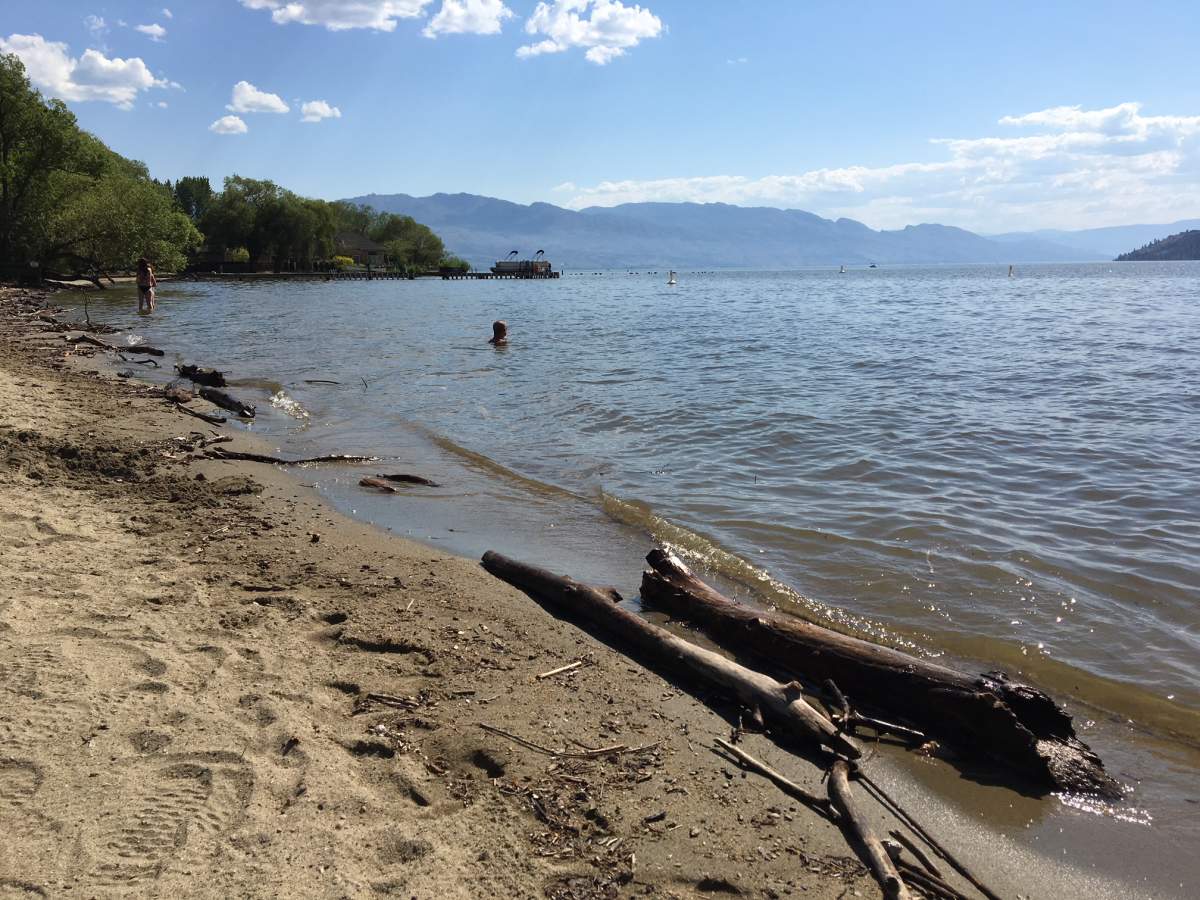It’s lower than last year’s record-breaking levels, but there’s still plenty of water in Okanagan Lake. So much so that the Central Okanagan Emergency Operations issued a warning on Wednesday.

Okanagan Lake has peaked and is now receding, said Joe Creron, director for the Emergency Operations Centre, but the lake is still well above full pool, which means the lakeshore is vulnerable to flooding or erosion if there are high winds or a major rainstorm.
The lake peaked at 342.69 meters, which was 57 centimeters lower than the high mark in 2017. On Wednesday morning, Okanagan Lake measured at 342.66 m, and Creron said flood protection measures need to stay in place until the lake drops another 18 cm to full pool at 342.48 m.
“The situation is looking good, especially compared to last year,” Creron said in a press release. “But we have to hold on just a little bit longer before it is safe to take away the log booms and other protection measures.

Get breaking National news
“While it’s impossible to know for sure how long it will take, we are hopeful that the lake will reach seasonally normal levels within two weeks.”
People living near the waterfront are urged to keep protection measures in place until the Emergency Operations Centre has announced that the flood risk has passed.
Log booms have been installed near Swim Bay in Peachland, Hot Sands Beach in Kelowna’s City Park and Maude-Roxby Bird Sanctuary in Kelowna. Measures, such as sandbags, have been installed in other locations around Okanagan Lake.
The Emergency Operations Centre says lake levels are monitored daily and plans are in place to remove the log booms and other equipment as soon as the flood risk has passed.
States of local emergency remain in effect for Kelowna, West Kelowna, Peachland, Westbank First Nation and the Regional District of Central Okanagan. The state of local emergency for Lake Country expired June 5.
Residents and visitors are also asked to leave debris washed up on beaches in place. Logs and other wood help limit erosion caused by wave action. Crews are ready to remove the debris from the beaches as soon as the erosion risk has passed.
The Emergency Operations Centre said creeks and streams in the Central Okanagan have stabilized and flood protection measures have mostly been removed from the areas. Residents who don’t live near lakeshores can dismantle their protection measures. Sandbags should be returned to active sandbag sites or designated drop-off locations, with the sand still in the bags. These sites and locations are indicated on the map at www.cordemergency.ca.






Comments